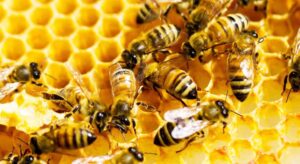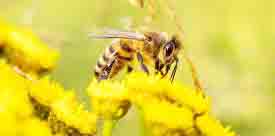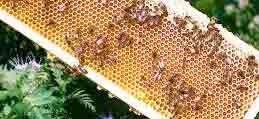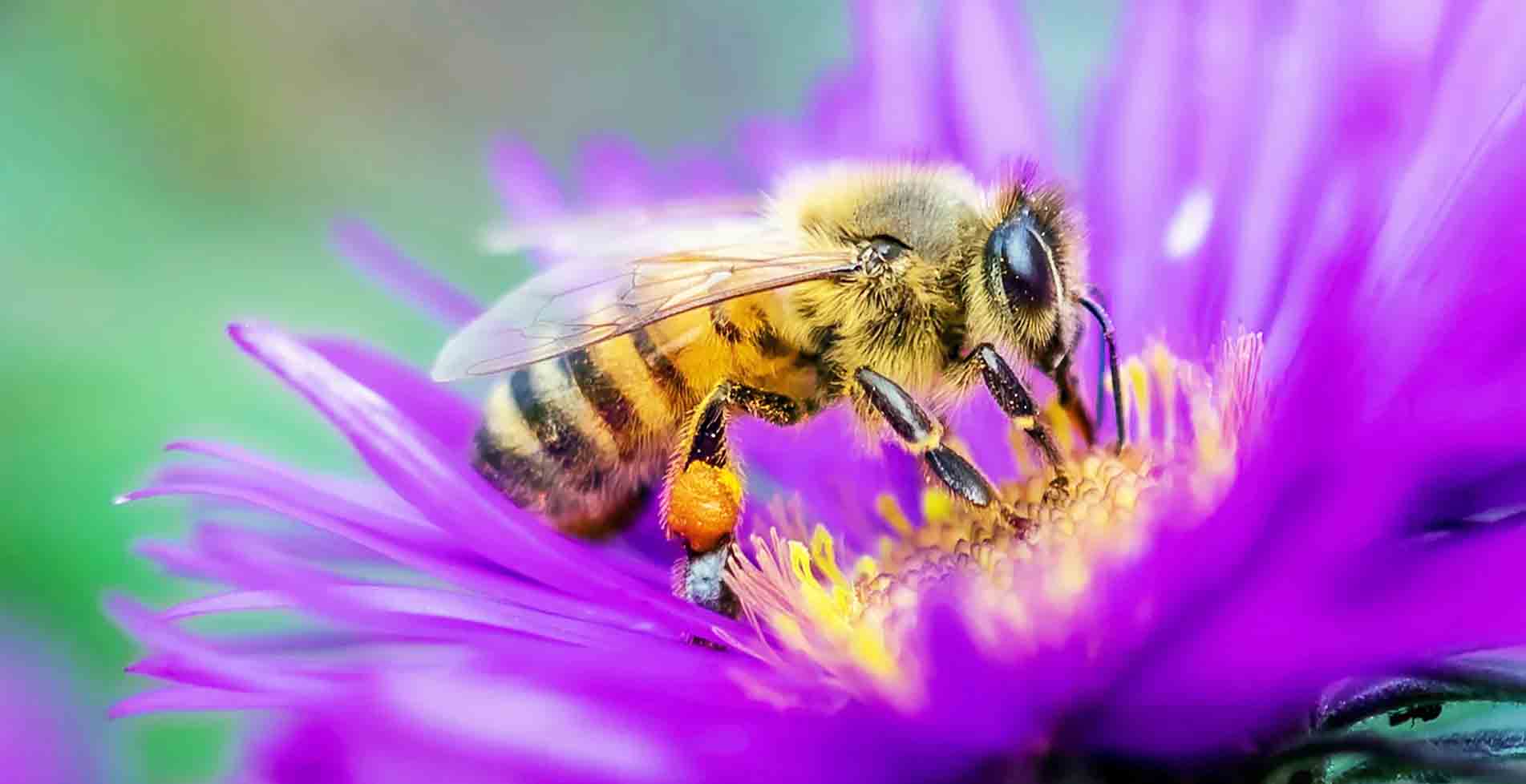-But their populations have been declining globally over recent decades due to habitat loss, intensive farming practices, changes in weather patterns and the excessive use of agrochemicals such as pesticides;
MAARUFU MOHAMED-GOLFNEWSLINKS;
Bees, the greatest pollinators provide high-quality food-honey, Royal jelly and pollen, and other products such as beeswax, propolis and honey bee venom.
According to UNEP, the landmark 2019 report from the Intergovernmental Science-Policy Platform on Biodiversity and Ecosystem Services (IPBES) notes, “Sacred passages about bees in all the worlds’ major religions highlight their significance to human societies over millennia.”

Beekeeping also provides an important source of income for many rural livelihoods and according to IPBES, the Western honey bee is the most widespread managed pollinator globally, and more than 80 million hives produce an estimated 1.6 million tonnes of honey annually.
And pollinators contribute directly to food security.

According to bee experts at the Food and Agriculture Organization (FAO) of the United Nations, a third of the world’s food production depends on bees.
When animals and insects pick up the pollen of flowers and spread it, they allow plants, including many food crops, to reproduce.
Birds, rodents, monkeys and even people pollinate, but the most common pollinators are insects, and among them, bees.
But sadly, bees and other pollinators, such as butterflies, bats and hummingbirds, are increasingly under threat from human activities.
Bee populations have been declining globally over recent decades due to habitat loss, intensive farming practices, changes in weather patterns and the excessive use of agrochemicals such as pesticides.

This in turn poses a threat to a variety of plants critical to human well-being and livelihoods.
Air pollution is also thought to be affecting bees as Preliminary research shows that air pollutants interact with scent molecules released by plants which bees need to locate food.
The mixed signals interfere with the bees’ ability to forage efficiently, making them slower and less effective at pollination.
While the vast majority of pollinator species are wild, including more than 20,000 species of bees, the mass breeding and large-scale transport of pollinators can pose risks for the transmission of pathogens and parasites.
According to the IPBES report, better regulation of their trade can decrease the risk of unintended harm.
In May 2018, the European Union upheld a partial ban on three insecticides known as neonicotinoids to mitigate the lethal threat they pose to bees and their trickle-down effect on pollination as a whole.
This August, when World leaders gather in Kunming, China, at the United Nations Biodiversity Conference (COP 15), they are expected to finalize the post-2020 biodiversity framework, which calls for, amongst other things, the reduction of pesticides by at least two thirds by 2030.
“Increasing crop and regional farm diversity as well as targeted habitat conservation, management or restoration, is one way of combating climate change and promoting biodiversity,” says UN Environment Programme (UNEP) biodiversity specialist Marieta Sakalian. “Governments need to take the lead.”
It is precisely to encourage governments, organizations, civil society and concerned citizens to protect pollinators and their habitats that the UN has declared 20 May World Bee Day.
World Bee Day raised awareness of the essential role bees, and other pollinators play in keeping people and the planet healthy.

The date coincided with the birthday of Anton Janša, who in the 18th century pioneered modern beekeeping techniques in his native Slovenia and praised the bees for their ability to work so hard while needing so little attention.
Some actions that can take to help preserve bees and other pollinators includes Planting nectar-bearing flowers such as marigolds or sunflowers for decorative purposes on balconies, terraces, and gardens, buy honey and other hive products from your nearest local beekeeper and Raise awareness among children and adolescents on the importance of bees and express your support for beekeepers
Others are Setting up a pollinator farm on a balcony, terrace, or garden Preserve old meadows, which feature a more diverse array of flowers, and sow nectar-bearing plants, cut grass on meadows only after the nectar-bearing plants have finished blooming, use pesticides that do not harm bees, and spray them in windless weather, either early in the morning or late at night, when bees withdraw from blossoms.
ENDS;
NOTE;
WANT YOUR GOLF, SPORTS, BUSINESS, ROTARY, ENVIRONMENT, OPINIONS OR SPONSORED RELATED CONTENTS PUBLISHED ON THIS SITE?
-YOU HAVE AN ADVERT FOR THE VISIBILITY OF YOUR BUSINESS OR ANY EVENT?
KINDLY SHARE TO;
mmaarufu@gmail.com/golfnewslinks@gmail.com
Phone/What’s up…+254726614604/+254722415598.




























